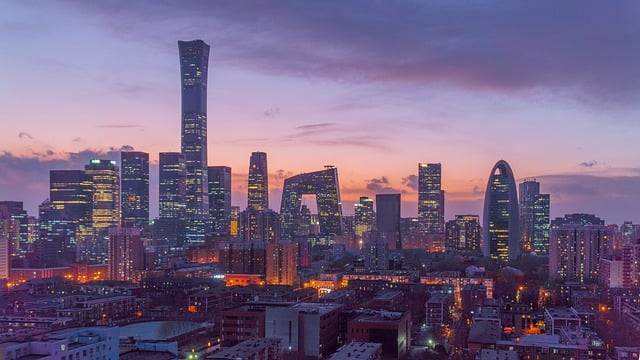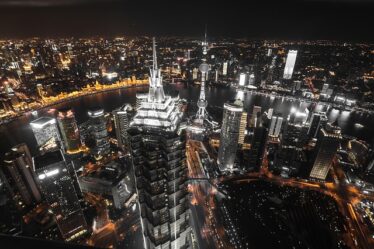
Beijing, the capital of China, is a city where ancient history and modernity coexist harmoniously. With its rich cultural heritage, stunning architecture, and vibrant lifestyle, Beijing offers a unique and unforgettable experience for visitors. This detailed guide will take you through the best attractions, cultural experiences, culinary delights, and practical travel tips to ensure you make the most of your visit to Beijing.
A Glimpse into Beijing’s History
Beijing’s history spans over three millennia, making it one of the oldest cities in the world. It has been the political and cultural center of China for centuries, serving as the capital during several dynasties, including the Yuan, Ming, and Qing. The city is home to numerous historical landmarks, many of which are UNESCO World Heritage Sites, reflecting its significance in Chinese history.
Top Attractions in Beijing
The Forbidden City
The Forbidden City, also known as the Imperial Palace, is the largest and best-preserved ancient palace complex in the world. Constructed during the Ming Dynasty, it served as the home of emperors and their households for nearly 500 years. The palace boasts stunning architecture, intricate artwork, and extensive collections of cultural artifacts. Visitors can explore the vast courtyards, halls, and gardens while learning about the history and culture of imperial China.
The Great Wall of China
No visit to Beijing is complete without seeing the Great Wall of China. Several sections of the wall are easily accessible from the city, including Badaling, Mutianyu, and Jinshanling. Each section offers unique views and hiking experiences, allowing visitors to appreciate the engineering marvel and historical significance of this ancient structure.
Tiananmen Square
Tiananmen Square, one of the largest public squares in the world, is a significant political and cultural landmark in Beijing. It is surrounded by important buildings, including the Great Hall of the People, the National Museum of China, and the Mausoleum of Mao Zedong. The square is also the site of the iconic Tiananmen Gate, which leads to the Forbidden City.
Temple of Heaven
The Temple of Heaven is a magnificent complex of religious buildings where emperors of the Ming and Qing Dynasties performed annual ceremonies to pray for good harvests. The temple is renowned for its stunning architecture, including the Hall of Prayer for Good Harvests, which is an iconic symbol of Beijing. The surrounding park is a popular spot for locals to practice tai chi, dance, and other cultural activities.
Summer Palace
The Summer Palace is a beautiful imperial garden and palace complex that served as a retreat for emperors during the hot summer months. The site features stunning landscapes, including Kunming Lake and Longevity Hill, as well as exquisite buildings such as the Hall of Benevolence and Longevity and the Marble Boat. The Summer Palace is a perfect place to relax and enjoy the natural beauty and tranquility of traditional Chinese gardens.
Cultural Experiences
Peking Opera
Peking Opera is a traditional Chinese performing art that combines music, vocal performance, mime, dance, and acrobatics. It is known for its elaborate costumes, intricate makeup, and dramatic storytelling. Attending a Peking Opera performance in Beijing is a fantastic way to experience Chinese culture and history.
Hutongs and Siheyuans
Hutongs are narrow alleyways that are characteristic of traditional Beijing neighborhoods. Walking through the hutongs gives visitors a glimpse into the city’s past and its local way of life. Siheyuans are traditional courtyard houses found within the hutongs. Many have been converted into museums, guesthouses, and cultural centers, offering a unique insight into Beijing’s architectural heritage.
Calligraphy and Tea Ceremonies
Chinese calligraphy is a revered art form, and Beijing offers numerous opportunities to learn and appreciate this ancient craft. Visitors can participate in calligraphy workshops or visit exhibitions to see masterpieces by renowned artists. Additionally, experiencing a traditional Chinese tea ceremony is a must. Tea houses throughout the city provide an authentic atmosphere to enjoy various types of Chinese tea and learn about the cultural significance of tea drinking.
Culinary Delights
Peking Duck
Peking Duck is Beijing’s most famous dish and a must-try for any visitor. The duck is roasted to perfection, with crispy skin and tender meat, and is typically served with thin pancakes, scallions, cucumber, and hoisin sauce. Quanjude and Dadong are two renowned restaurants where you can enjoy this culinary delight.
Street Food
Beijing’s street food scene is vibrant and diverse, offering a wide range of delicious and affordable treats. Wangfujing Snack Street and Donghuamen Night Market are popular spots to sample local specialties such as jianbing (savory crepes), baozi (steamed buns), and chuan’r (skewered meat).
Imperial Cuisine
For a more refined dining experience, try imperial cuisine, which is based on dishes once served to the emperors. These meals are often elaborate and beautifully presented, featuring high-quality ingredients and meticulous preparation. Fangshan Restaurant in Beihai Park is a famous establishment offering authentic imperial cuisine.
Practical Travel Tips
Getting Around
Beijing has an extensive and efficient public transportation system, including buses, taxis, and the subway. The Beijing Subway is the quickest and most convenient way to travel around the city. For a more traditional experience, consider renting a bicycle or taking a rickshaw ride through the hutongs.
Best Time to Visit
The best time to visit Beijing is during the spring (April to June) and autumn (September to November) when the weather is mild and pleasant. Summer can be hot and humid, while winter is cold with occasional snowfall. However, visiting in winter offers a unique charm, especially during the Chinese New Year celebrations.
Accommodation
Beijing offers a wide range of accommodation options to suit all budgets and preferences. From luxury hotels and boutique guesthouses to budget hostels and traditional siheyuan courtyards, there is something for everyone. Popular areas to stay include the Wangfujing shopping district, the historic Qianmen area, and the trendy Sanlitun district.
Language and Communication
While Mandarin Chinese is the official language, many people in the tourism industry speak some English. Learning a few basic phrases in Mandarin can enhance your experience and make interactions with locals more enjoyable. Additionally, having a translation app or phrasebook handy can be helpful.
Conclusion
Beijing is a city that seamlessly blends ancient traditions with modern advancements, offering a rich tapestry of experiences for every visitor. From exploring iconic landmarks and indulging in culinary delights to immersing yourself in cultural activities, Beijing promises an unforgettable journey through time and culture. Plan your visit to Beijing and discover the many wonders of China’s historic capital.

